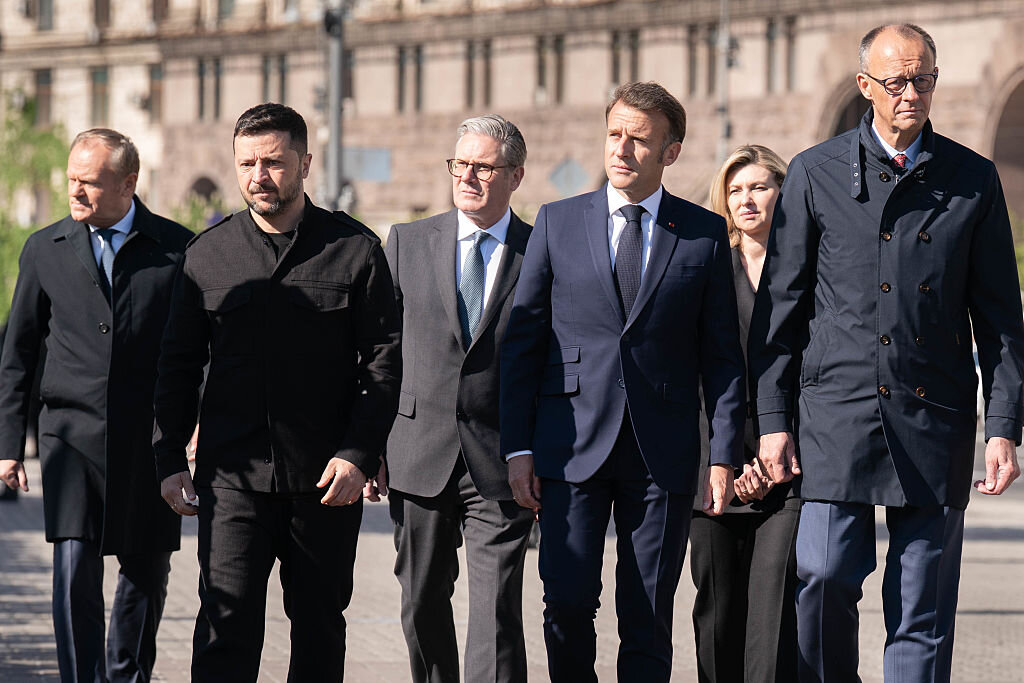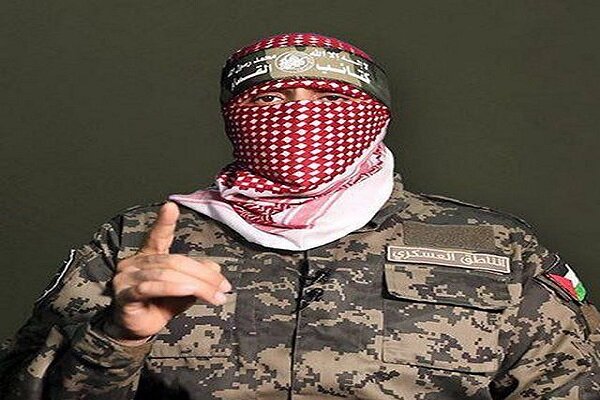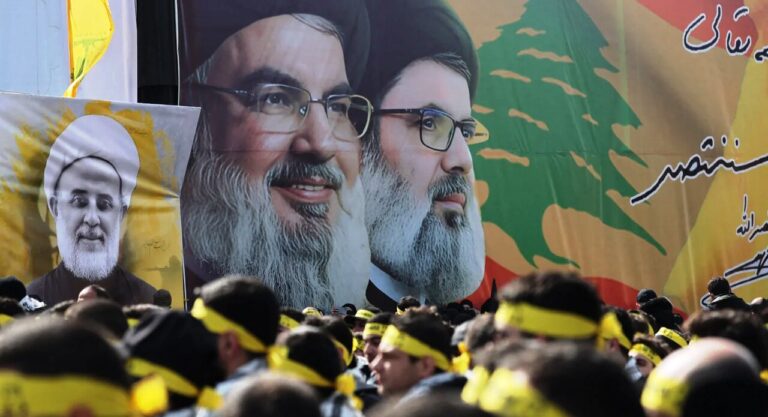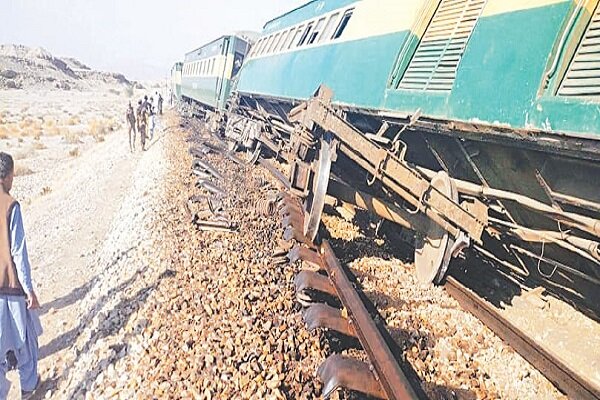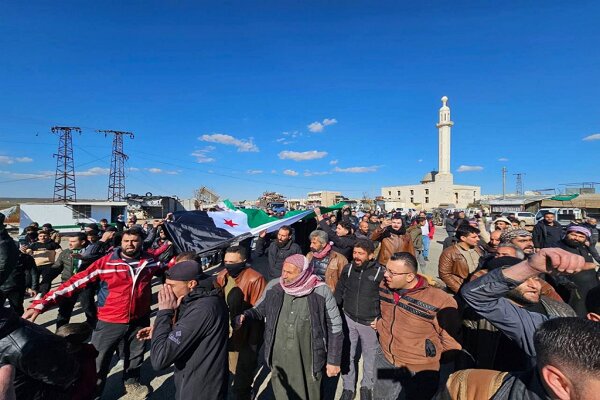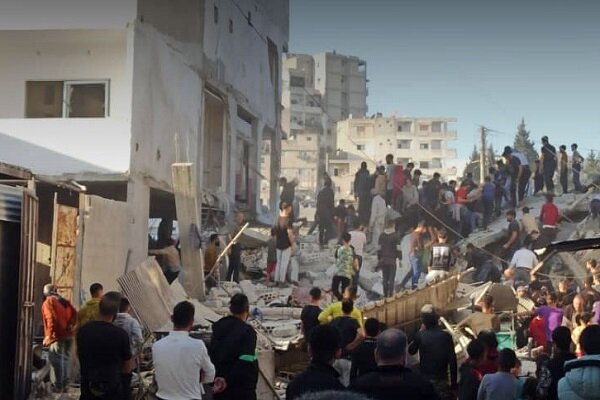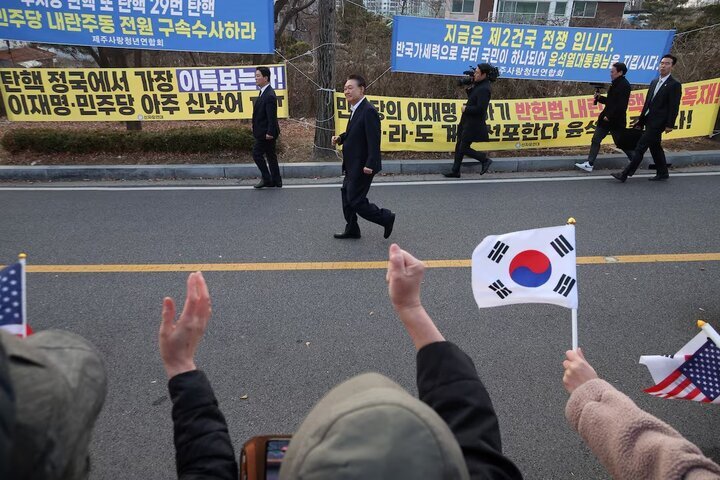European Leaders Embark on Historic Visit to Kyiv: A Symbol of Unity and Support
The ongoing conflict in Ukraine has prompted a significant response from the leaders of Germany, France, the United Kingdom, and Poland. They have issued a critical ultimatum to Russian President Vladimir Putin, demanding his agreement to a 30-day ceasefire starting this Monday. This request comes with the potential for “massive” sanctions if not adhered to, as noted by French President Emmanuel Macron during his visit to Kyiv.
In a show of unity, Macron stood alongside Ukraine’s President Volodymyr Zelensky, alongside new German Chancellor Friedrich Merz, UK Prime Minister Keir Starmer, and Polish Prime Minister Donald Tusk. The leaders emphasized that the proposed ceasefire must be upheld across all domains: land, sea, and air.
Macron articulated that if the ceasefire is successful, it could lay the groundwork for “the immediate launch of negotiations to build a robust and lasting peace.” This statement highlights the urgency and importance of diplomatic efforts in resolving the ongoing crisis.
In an exclusive interview with CNN’s Frederik Pleitgen, Kremlin spokesperson Dmitry Peskov addressed the proposal for a ceasefire. He stated that Russia is “resistant to any kind of pressure,” reflecting the complexities surrounding the negotiation process. Peskov acknowledged that President Putin generally supports the idea of a ceasefire but raised concerns, mentioning that “there are lots of questions” regarding the recent proposal. However, he did not elaborate on what these questions entail.
- Ceasefire Demand: European leaders have called for a 30-day ceasefire.
- Potential Sanctions: Failure to comply may result in significant sanctions against Russia.
- Support from the U.S.: The White House is backing the European leaders’ demands.
- Negotiation Opportunities: A successful ceasefire could initiate peace negotiations.
The geopolitical landscape continues to shift as these developments unfold. The message from European leaders is clear: they expect a serious commitment from Russia to cease hostilities. This demand reflects a collective determination to move towards peace in Ukraine, a region that has faced significant turmoil.
As the situation evolves, it remains crucial for all parties involved to consider the ramifications of their actions. The international community is watching closely, and the stakes are high. With potential sanctions looming, the pressure on Russia to engage constructively in the peace process is mounting.
The leaders’ visit to Kyiv serves as a potent symbol of solidarity with Ukraine and its ongoing struggle. The emphasis on a ceasefire is not merely a political maneuver; it highlights a genuine desire to protect lives and restore stability in the region.
Moving forward, the dialogue between European leaders and the Kremlin will be pivotal. The complexities of international relations, particularly in conflict zones, require careful navigation and an understanding of each party’s concerns and objectives.
In light of the recent statements from Kremlin officials, it is evident that while there is a willingness to discuss a ceasefire, significant hurdles remain. The path to peace is fraught with challenges, but the call for a ceasefire is a crucial step towards de-escalation.
As the deadline approaches, the world watches to see if Russia will respond positively to the European leaders’ ultimatum. The implications of this decision will undoubtedly resonate beyond the borders of Ukraine, affecting global politics and international relations for years to come.
In conclusion, the demand for a ceasefire and the potential for negotiations represent a critical juncture in the ongoing conflict. The unity displayed by European leaders underscores the importance of collaborative efforts in addressing international crises. As stakeholders continue to engage in dialogue, the hope for a peaceful resolution remains alive.
